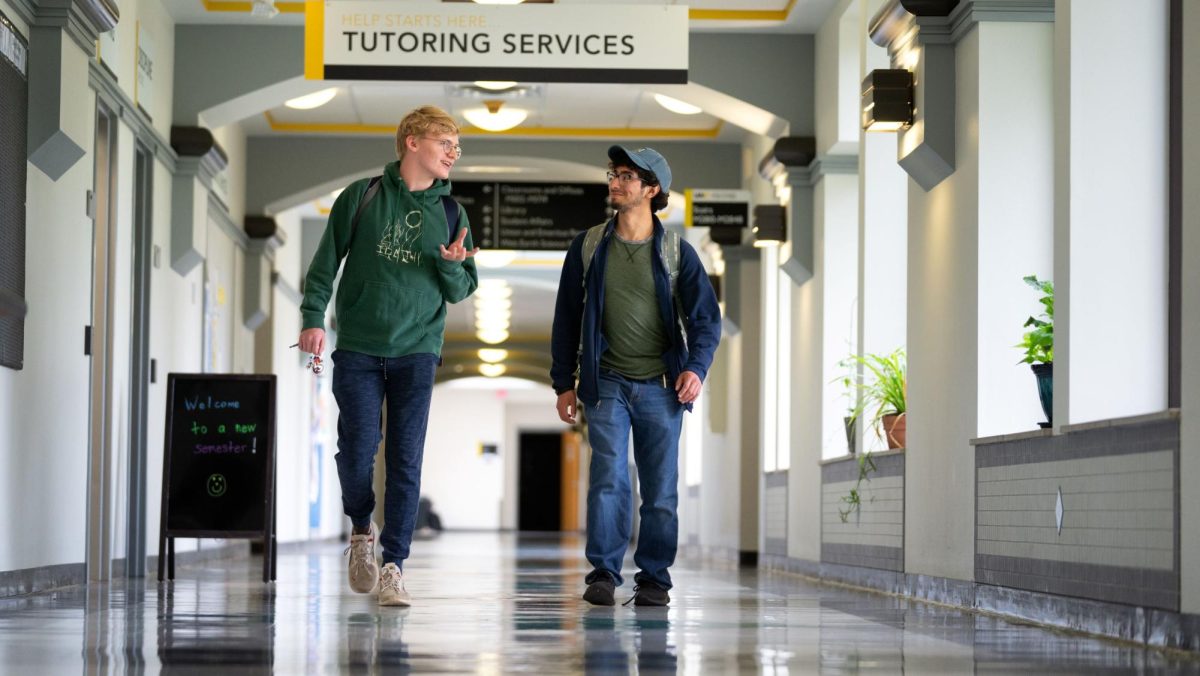My first day of college, I was convinced I had shown up on the wrong day.
The parking lot was mostly empty, only a few other students were in sight and all of the promotional flyers were dated from the previous year.
Campus was quiet, and that’s how it was every day after at the UW Oshkosh-Fox Cities branch campus.
Granted, this was just after the pandemic lockdown, and many classes were strictly online, but even years later, a ghost school is the reality for many of the Universities of Wisconsin access campuses.
Just 549 students are enrolled at the Fox Cities access campus this fall, down from 1,291 students in 2018. Even more startling? UWO’s Fond du Lac campus hosts just 238 students, down from 499 in the same five-year period.
Such low enrollment numbers forced UW-Platteville at Richland campus to stop offering classes.
Following the cut, University System President Jay Rothman requested financial assessment of all access branches in April leaving students, staff and faculty wondering if their campus is next on the chopping block. This is an especially timely question as the University System faces a $33 million deficit after the 2023 fiscal year.
If they’re struggling so much, why shouldn’t the UW schools cut these campuses? Why spend the money we don’t have to keep them open?
The reality is that access campuses are a saving grace for non-traditional students.
Cutting these programs would be detrimental to people who don’t have the privilege of attending a four-year university. Access campuses allow a wider array of students to get the education they deserve and for many, they are the best available option.
Financial accessibility
Lower costs are one of the biggest reasons incoming students opt to enroll in an access campus, which offer tuition rates as much as $3,000 lower than their parent four-year institutions.
UWO’s Fox Cities and Fond du Lac campuses currently offer in-state tuition of just $5,509 for Fond du Lac and $5,318 for Fox Cities per year, and students can choose to live at home, off campus or on campus.
Meanwhile, UWO’s main campus typically charges $8,258, and lowerclassmen are required to rent an on-campus dorm and purchase a meal plan.
Accounting for these fees, the annual cost rises to nearly $16,000 per year, an unattainable goal for many students.
Access campuses’ lower costs also equal lower risks for students who aren’t quite sure college is for them.
These campuses allow students to get their feet wet in the higher academic world without having to pack up and move away from home, just to find out they wasted tens of thousands of dollars on something they didn’t want to pursue.
Taking away access campuses means taking away access to higher education for many lower-income students. For an institution created to teach, this would be inexcusable and contradict the fundamentals of a liberal education.
Closer to home
Although it was found that 40% of Americans who began college in 2021 moved away from home to do so according to Hireahelper.com, this is not an option for many other students.
Of course, living at home cuts the cost of pricey meal plans and room and board. However, work and/or familial obligations can also influence a student’s decision to enroll in an access campus as opposed to a four-year university.
Nationally recognized college admissions counselor Sara Harberson noted that students can and should even go as far as putting these responsibilities as extracurricular achievements on college applications.
She said she’s worked with students tasked with taking care of children of their own or younger siblings, helping with family-owned businesses and driving elderly family members to doctors appointments.
“Watching over siblings, checking in on grandparents and helping out the family business are just a few things that happen in a day that mean more than a good grade, a big leadership title or even a gold medal,” she wrote in a blog post.
These responsibilities are a major part of many students’ lives, and just because the semester begins doesn’t mean they go away.
Non-traditional and returning students
The college experience is different for everyone, especially non-traditional students.
Non-traditional students can be older than typical college-aged students, have children, be married, commute to school or have previous college experience.
Because these students generally have to balance work, life and school, it’s recommended that they opt for affordable schools with flexible schedules; UW’s branch campuses accomplish this better than other four-year institutions.
While access campuses lack a welcoming environment that main campuses may have, they make up for it by prioritizing low costs and accommodating classes, many of which are available online.
At the Fox Cities campus, it’s rare to find students mingling. Students were there with a commitment to their education without goals of building a social life there; they already had one outside of school.
However, Fox Cities, along with other access campuses, understand the needs of non-traditional students and cater to them.
Branch campuses give non-traditional students an opportunity to learn when a four-year university might not be attainable, and the Universities of Wisconsin should not take this opportunity away.










